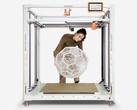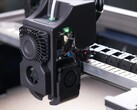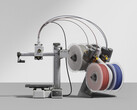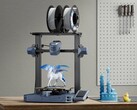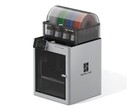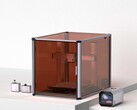Formlabs, the Massachusetts based OEM of Resin (SLA) and Powder (SLS) 3D printers, is equally known for its portfolio of innovative, proprietary resin materials. At the recent Digital Factory Conference in Boston, it has unveiled two new cutting-edge materials, the Silicone 40A and the Alumina 4N resins which can be used in its Form 3 series of SLA printers.
One trait silicone and ceramic components share is that traditional fabrication for both requires specialized equipment and expertise, and typically gets outsourced to specialist contractors. This approach is prohibitively expensive and time-consuming for anyone looking to produce parts in lower quantities or in iterations. This is precisely where 3D printing shines, cutting production time from a scale of weeks to mere hours, and at an astoundingly small fraction of the cost of conventional methods.
Silicone 40A is a pure silicone material ideal for soft and pliable parts that are resistant to chemicals, thermally stable (-25°C to 125°C), can handle repeated cycles of flexing, wear, and tear, and have fine features as small as 0.3 mm. The applications go well beyond prototyping: watch bands, patient-matched prosthetics, custom in-ear fittings, flexible industrial automotive components like connectors, seals and gaskets, manufacturing aids like casting molds, jigs, fixtures…these are all potential applications for Silicone 40A.
Alumina 4N is a technical ceramic material that is abrasion resistant, mechanically strong, electrically insulative and thermally and chemically inert, making it suitable for components that need to withstand extreme conditions, as in the automotive, aerospace, electronics, metallurgy and chemical industries. It also enables printing some very complex shapes that would be impossible with traditional fabrication.
Formlabs has also announced its Open Platform system, which will allow users of its SLA printers to use third party resins and customized print settings, bringing a new level of versatility and variety into its SLA ecosystem. Formlabs will curate a selection of certified third-party resins for use on Form 3 printers, and the PreForm Print Settings Editor will allow detailed customisation of print parameters.
Silicone 40A and Alumina 4N are available to purchase now on the Formlabs' website. The PreForm Print Settings Editor will be released in early October, and the Open Material License will be available in early Q1 2024.






